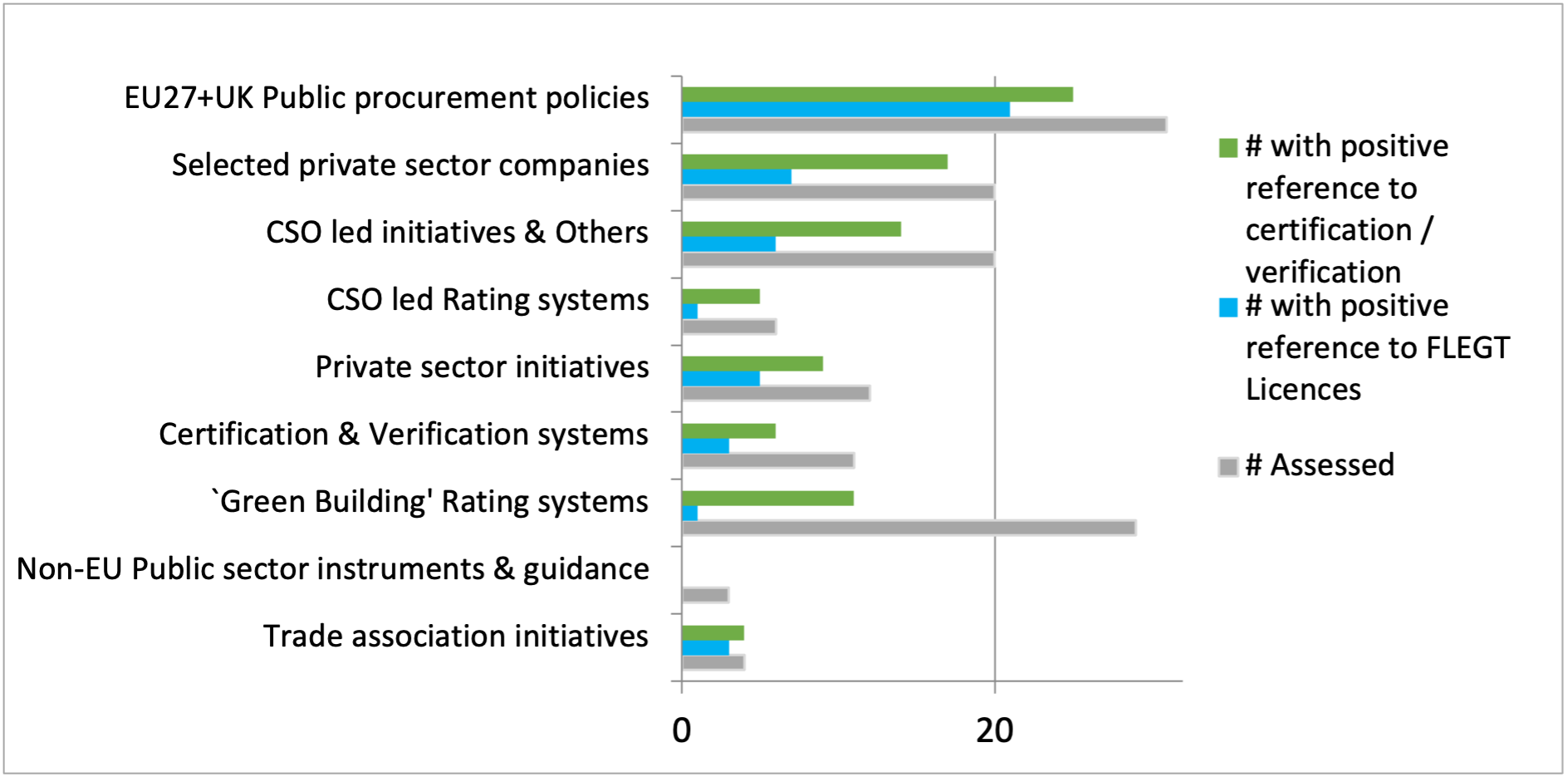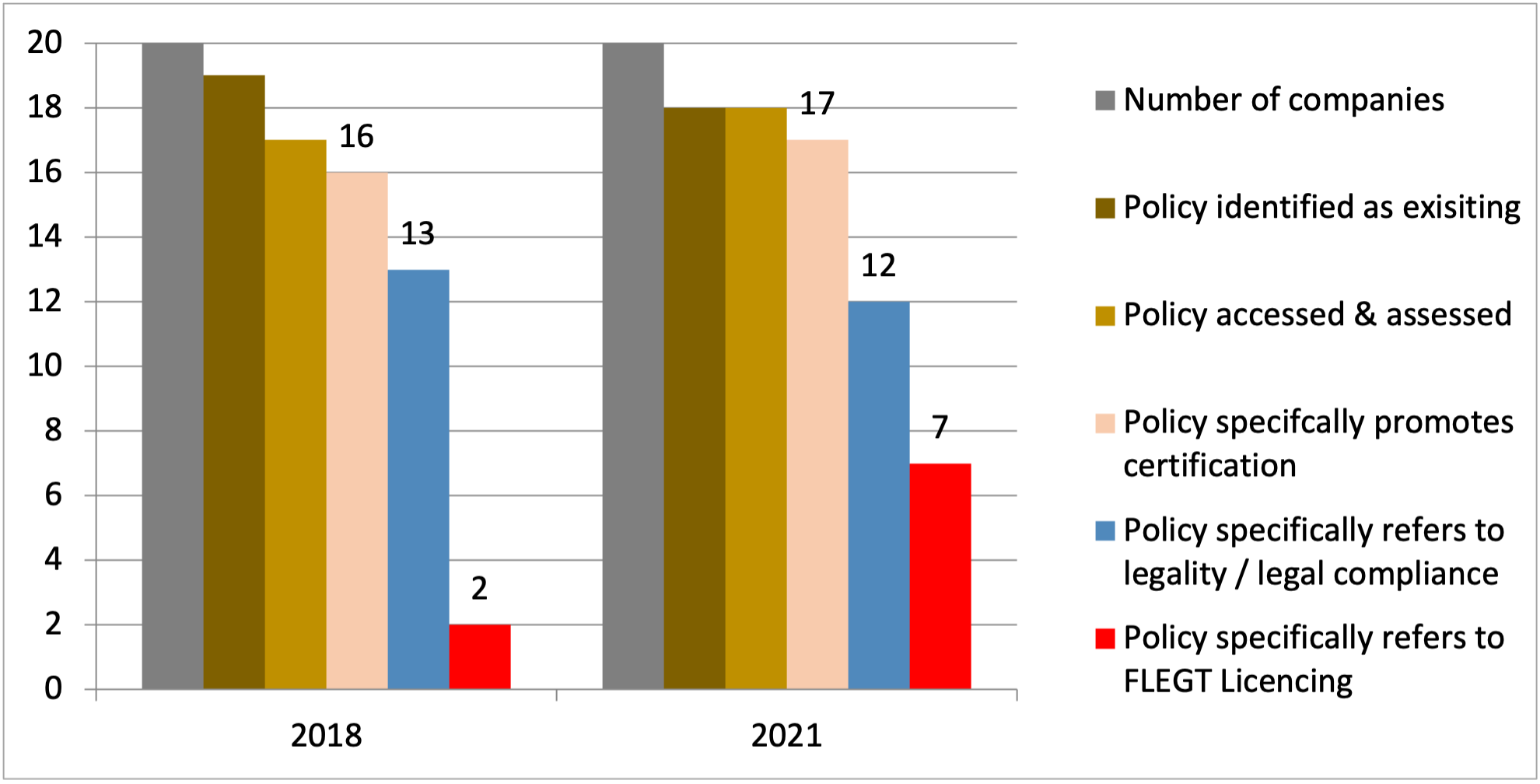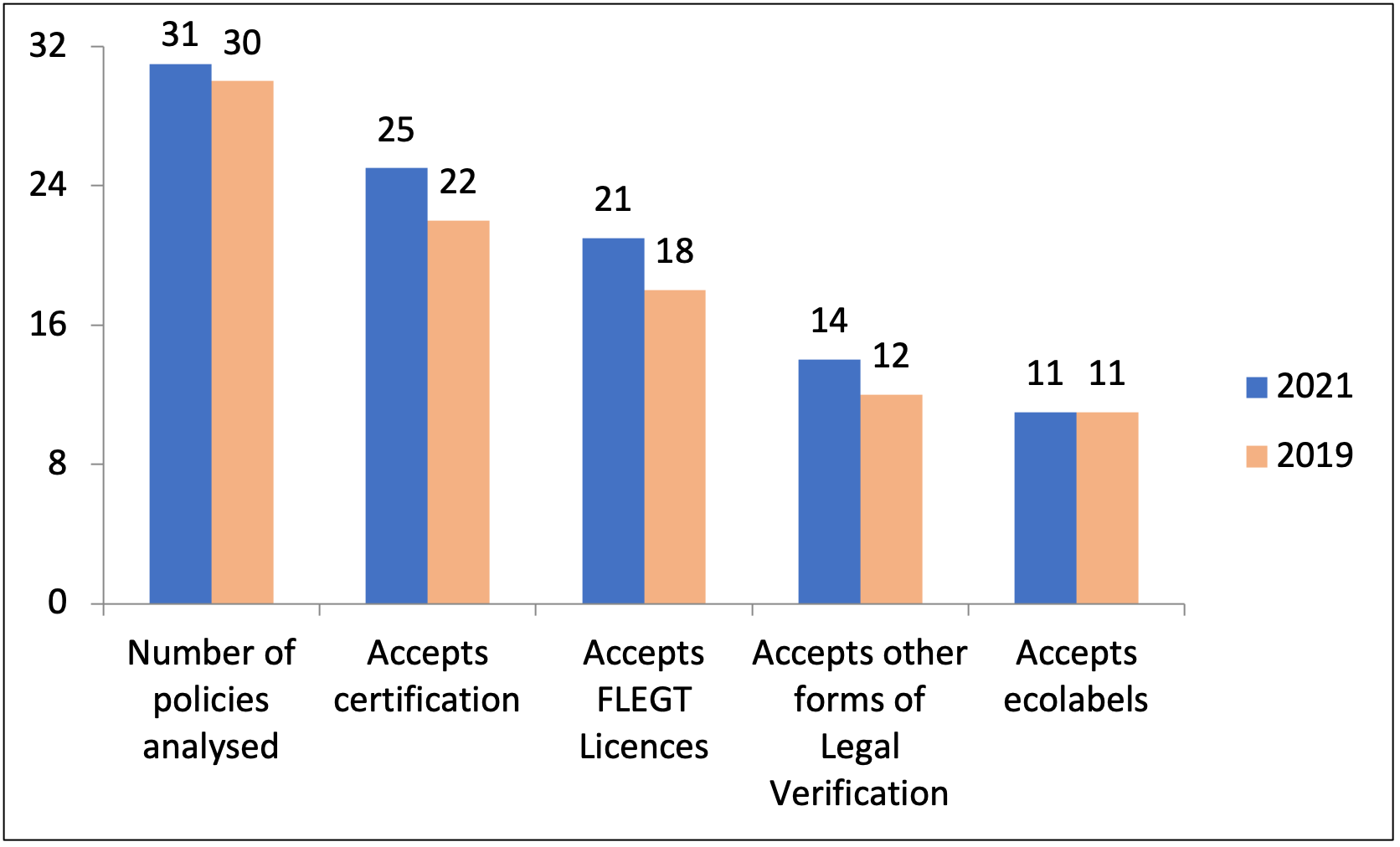A 2021 study of FLEGT recognition in public and private sector procurement policies as well as Green Building Rating Systems prepared by the IMM identifies some overall growth in recognition over previous studies published between 2018 and 2020. Out of 136 initiatives assessed, 74 are positive towards certification, with 40 identified as positive towards FLEGT licensing.

Since 2018, acceptance of FLEGT licensing has grown primarily within private sector-led or focused initiatives. The small sample of private-sector timber and timber product purchasing policies analysed by the 2021 study indicates that companies value such licensing and are willing to favour it by inclusion in their policy. These results correlate with findings of IMM annual surveys conducted in 2018, 2019 and 2020, which assessed a much broader range of over 100 companies per year across EU markets and also indicate increasing inclusion of FLEGT Licenses in respondents’ timber procurement policies between 2018 and 2020.

While often referencing it, EU Member States’ green procurement polices continue to make only a modest demand for FLEGT-licensed material and their true potential remains to be unleashed. Lagging far behind are the green building rating systems – with almost no recognition of FLEGT licensing coupled with relatively low levels of recognition of certification.
Overall, the study concludes that growth in acceptance of FLEGT licensing across the wide range of initiatives is visible but remains modest. While the private sector and those seeking to influence their purchasing behaviour have begun to recognise it, many other areas have yet to revise their policies or to recognise FLEGT licensing’s value.
The most fertile area with respect to renewal and re-evaluation of policy lies within the private sector. The selected companies have an average revision date of 2019 and CSO rating systems (targeting the private sector) have an average renewal date of 2020. Other private sector initiatives are also fairly up to date with an average renewal date of 2017 (i.e. post the introduction of FLEGT Licensed material to the market).
The assessed green building rating systems are also targeting the private sector and average a renewal date of 2018. Trade associations appear to lag the other private sector initiatives, though in reality those assessed were fast to embrace FLEGT and adapted their policies well in advance. Overall, the private sector initiatives a whole have proven most willing to keep their policies current.
The public sector policy initiatives are more slowly evolving. With an average revision date of 2013 most EU member states green procurement policies are still in the process of broadening their scope with respect to timber and timber products. Whilst around two thirds accept FLEGT Licences they continue to vary in their product or usage scope and often are not the powerful market driving tool that they might be. Moreover, while many of them are accepting FLEGT timber as being second to certified timber, or even less, merely as legal timber this is almost certain to cause additional hurdles in the market. In practice, it means that FLEGT-licensed timber is unlikely to ever be specified in public projects. It also means that FLEGT-licensed timber is unlikely to benefit from leadership or supplier consolidation effects.

The full report will be available on the IMM website in the fourth quarter of 2021. The 2021 report built on three earlier special studies published between 2018 and 2020.
